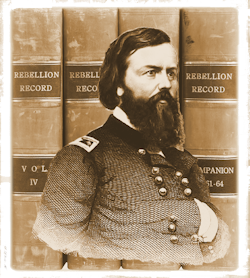February 24.—A slight skirmish took place at Mason’s Neck, in the neighborhood of Occoquan, Va., between a body of Texan rangers and a party of National troops. The rangers fired from a house in which they took refuge. Two of the Nationals, belonging to the New-York Thirty-seventh regiment, were killed, and another man was wounded. The loss of the rebels was not ascertained.—-N. Y. Herald, February 26.
—The Twelfth regiment of Connecticut volunteers, under the command of Colonel Henry C. Deming, left New-Haven for the seat of war at Ship Island, Gulf of Mexico.
—Cols. Wood, of the Fourteenth New-York, Lee, of the Twentieth Massachusetts, and Cogswell, of the Tammany regiment, (N. Y. S. V.,) arrived at Baltimore from Fortress Monroe, having been released by the rebels. Colonel Wood, who was present at the inauguration of Jeff. Davis, states that there was no enthusiasm manifested on the occasion.
—Bishop Thomas F. Davis, of the Diocesan Convention of the Episcopal Church of South Carolina, now in session at Charleston, has pronounced an address, in which he states that prior Conventions of the Church in the Confederate States had declared that “we were no longer, as a Church, in administrative union with the Church in the United States.”—N. Y. Times, February 23.
—An expedition, composed of four iron-clad gunboats and two mortar-boats, with the Twenty-seventh Illinois and a battalion of the Eighth Wisconsin Regiments, made a reconnoisance from Cairo, Illinois, down the Mississippi river this morning, and discovered that the rebels had seized all the flatboats and skiffs as far up as they dared to come; also that there had been a movement among the troops at Columbus. The gunboats and mortar-boats getting into position on the Missouri side of the river when a rebel steamer, with a white flag, made its appearance, some rebel officers came on board the Cincinnati, and a consultation took place.—Cincinnati Gazette.
— Harper’s Ferry, Va., was occupied by the National forces, under the command of General Banks. The troops were unopposed, and found all the necessaries for a permanent occupation.
—Lieut. A. C. Rhind, U. S. N., went, with Lieut. Prentiss and three men, on an expedition to Bear Bluff, opposite White Point, on North-Edisto River, S. C, where the rebels were erecting a battery. Two men were found, as picket guards, in the magazine of the unfinished battery, asleep. In attempting to secure them, one was shot by the accidental discharge of a pistol in the hands of Lieutenant Rhind. The other was captured.— (Doc. 62.)








